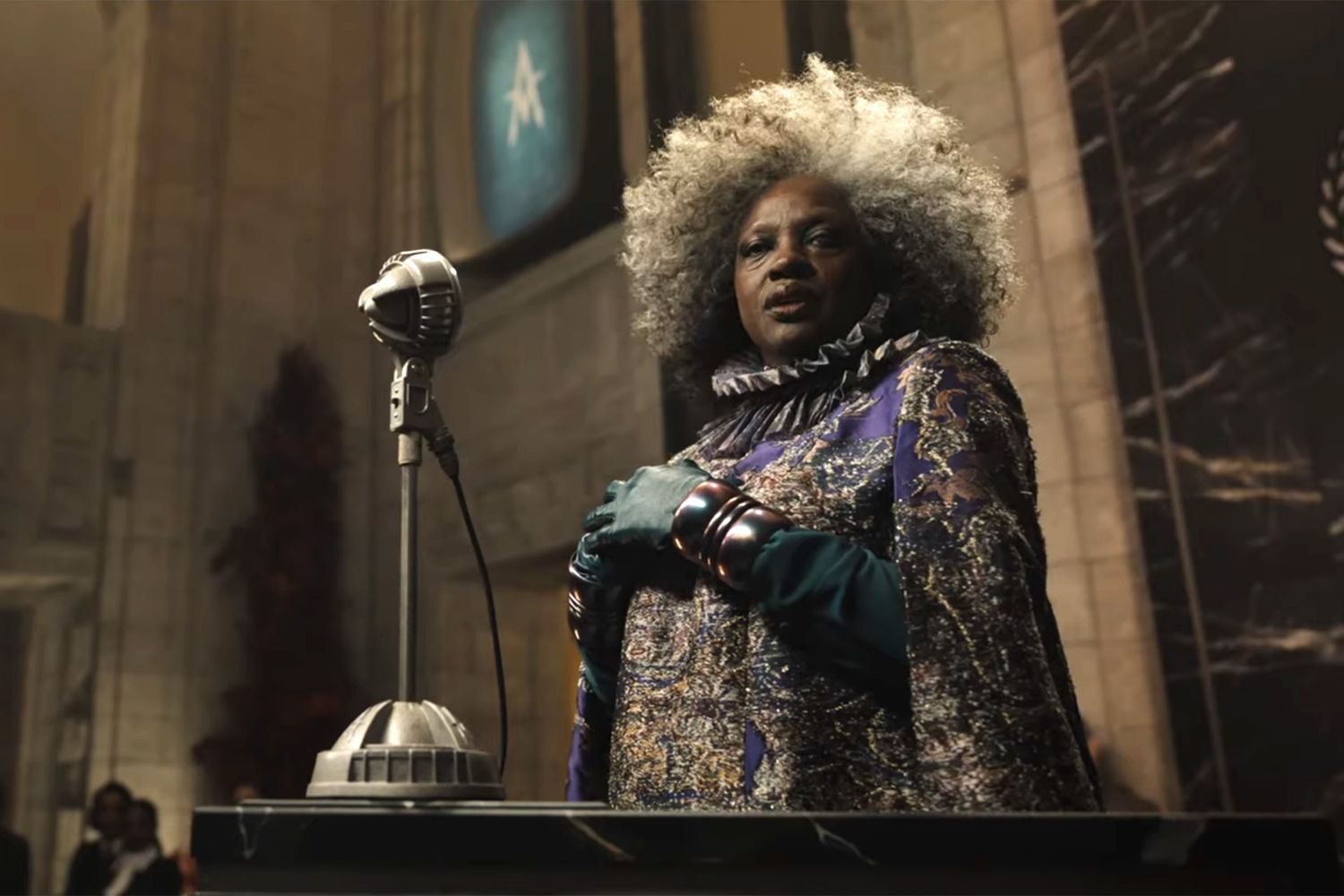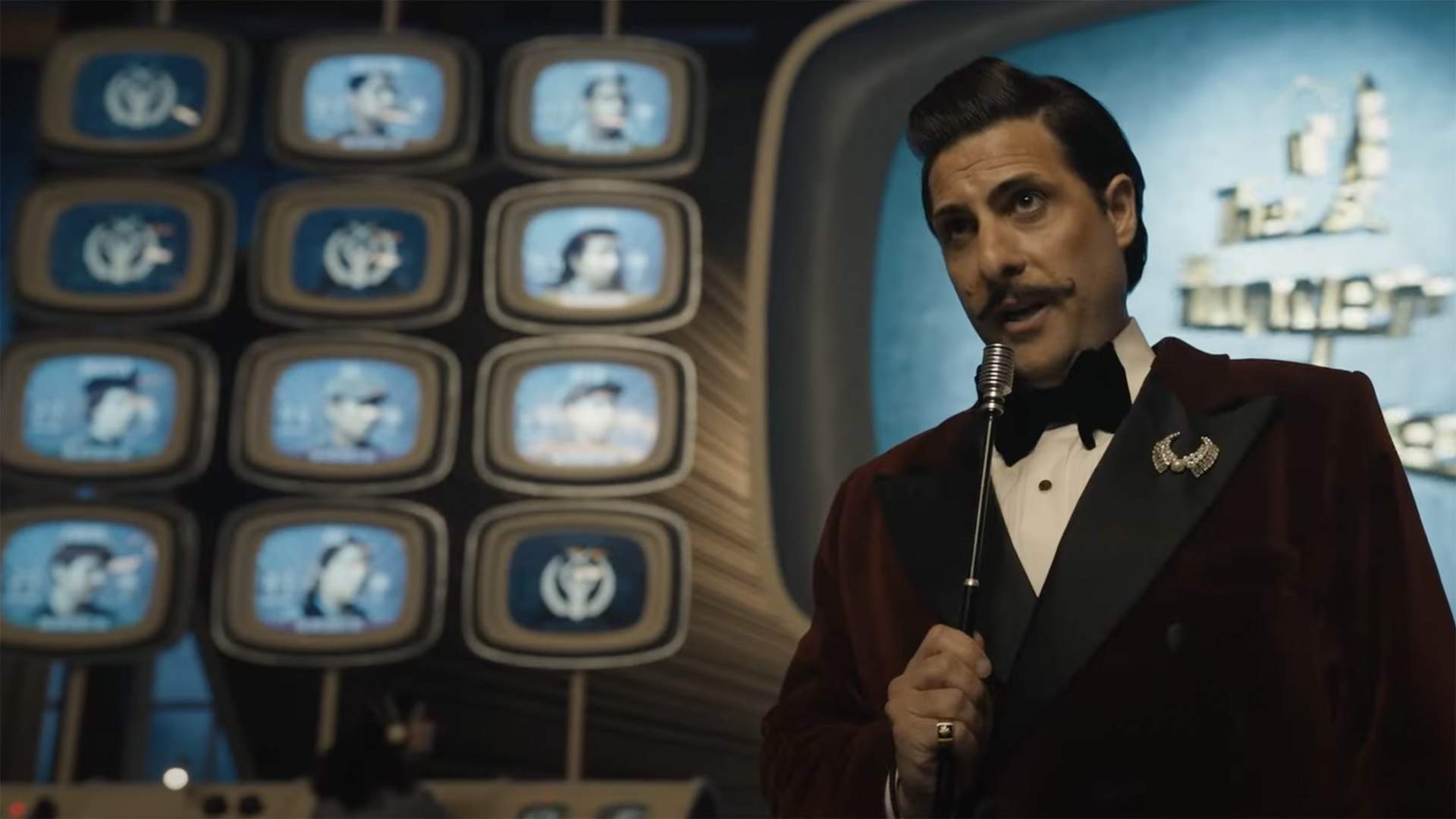You can think of The Hunger Games: The Ballad of Songbirds & Snakes as all three Star Wars prequels rolled into one. (And it feels about that long, too.) Conveniently, the film is split into three chapters so you don’t miss the comparison. If you remember that Donald Sutherland’s villain in the Hunger Games quadrilogy was named Coriolanus Snow – and this critic didn’t, at first – you’ll know that the hero of this new film comes to no good. There was no Darth Vader-like redemption awaiting that character. So it’s hard to place your sympathies with him even at the optimistic, baby Anakin beginning of his arc. Complicating this misstep is that the structure of the film, with its many swings of mood and character motivation, scrambles the film’s normal flow.
Adherence to a predictable structure was never the forte of these films, even though it could have been, given that the dystopian society of Panem revolves around an annual blood sport with one winner and 23 juvenile corpses left in the wreckage. For example, the final two instalments of that series, the Mockingjay movies, didn’t even feature a hunger games. But the third of these three chapters is so off structure that it feels like a new movie is starting – a new, bad movie, though only slightly worse than the two chapters that preceded it.
Snow is played here at university age by Tom Blyth, and he’s one of a couple dozen spoilt brats competing for the prestigious Plinth Award in the Capitol. Only nine previous hunger games have elapsed by this point, so the tradition is still in its comparative infancy, contained within one mouldering arena and lacking in the reality show-type hoopla that tries to turn its tributes into celebrities before it kills them. Although these brats are definitely spoilt, “Coryo” is among the least so; he’s a young man with a charitable outlook, and living with the secret that his family is about to become insolvent.
The founder of the games, Dean Casca Highbottom (Peter Dinklage), has started instituting some changes this year as a response to weak television ratings. The biggest is that each of his students, Coriolanus among them, will mentor a tribute in the hopes of polishing them into stars and increasing audience investment. Game master Dr. Volumnia Gaul (Viola Davis) will still inject devious challenges into the proceedings, but with fans invested, they’ll send gifts to tributes to assist in their short-term survival. (Training them extensively in all manner of weaponry is still a few decades off.)
And so we meet our second hero, this one more of the traditional sense, a district 12 tribute named Lucy Gray Baird (Rachel Zegler). She’s a gifted singer (the songbird of the title) and is matched up with Coriolanus. She doesn’t expect to emerge from the group, but with her mentor instituting some new suggestions about expanding the viewership of the games, maybe she’ll have a leg up on the competition.
Francis Lawrence directed the last three movies after receiving the baton from Gary Ross, so he is now to The Hunger Games as David Yates is to the Wizarding World of Harry Potter. Familiarity does not breed comfort in this case. This is a low-rent Panem that lacks in specific design details, preventing it from feeling lived in. Lawrence directs broadly, the performances verging on melodrama when the story hasn’t gotten us there yet. Michael Lesslie and Michael Arndt’s script is a ham-fisted sprint through the larger touchstones of this world without getting any of its nuances. The writing has a way of feeling both cursory and distended, such that when the third of the three roman numeral chapters arrives on screen, you’ve learned little, but also can’t believe you still have a third of the movie to go.
You know what this movie is really missing? Jennifer Lawrence. Not Lawrence specifically – this would be a couple decades before Katniss Everdeen was born – but someone with similar charisma. Rachel Zegler ain’t it, but it’s also partly the way Lucy Gray is written. Lucy Gray (always both names together) is a bit like an American Idol contestant, belting out soul music that she can give the twang of country if the situation calls for it. She gives the finger to the Capitol one minute, convincing us she’s above it all and the loss of her life won’t even bother her. The next minute, she’s pleading to Coriolanus not to let her die out there. Which is it? Zegler struggles with the challenges of the script’s inconsistent characterisation.
Blyth is a non-factor, but there are other cast members who could have really propped this one up. Dinklage comes closest, as his character shares a grandstanding quality with Dinklage’s most famous character, Tyrion Lannister. His Dean also gets lost in the script’s confused character motivations, as he hates Coriolanus for reasons that are explained too late and too feebly. Oscar winner Davis is where we might have pinned our hopes coming in. Her performance is more that of the typical villain, all the perversities and weird hairstyles of Panem existing in one sadistic maniac. Jason Schwartzman tries to add a bit of comedy as the first host of the games, a weatherman/magician named Lucky Flickerman, but his shtick produces nary a chuckle.
The Hunger Games: The Ballad of Songbirds & Snakes was not doomed from the start. Its world has not been picked clean, cinematically, and it’s fair to say we’ve developed a hunger for more of this material in the eight years since the last movie. This feels like a pale imitation of the world that was drawn there. To the extent those movies did succeed – increasingly less as they went – they married the outrageous details of the world with making us care about the tributes who were going to succumb to it. Belatedly, the series seems to realise how tricky that balance is, and hedges with a moral compromise that comes down to “Well, if you don’t really get to know the tributes, their murder might not give you so much pause.”
Simply put, the movie chooses the wrong sort of ambiguous morality with which to challenge us. The Ballad of Songbirds & Snakes suffers from extreme villain origin story syndrome. Prequels are reliant to a fault on a character who ties directly into the IP, as though learning how President Snow came to be were enough to drive us out to the cinemas. His three-act narrative arc toward evil requires wild jumps in his perspectives and motivations to get him where we know he needs to end up. That’s a surface indicator of the more damaging underlying flaw: We don’t care what President Snow was like when he was 21, and never did.
Given its interest in this number, it should be no surprise that Hunger Games: The Ballad of Songbirds & Snakes ends up with a



